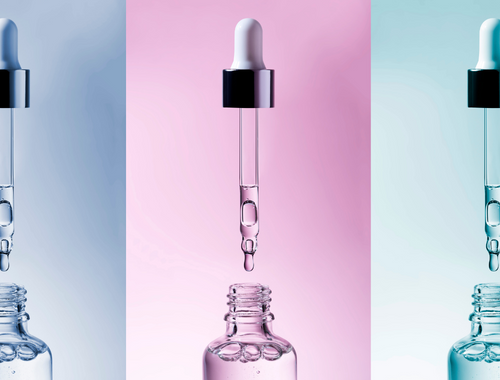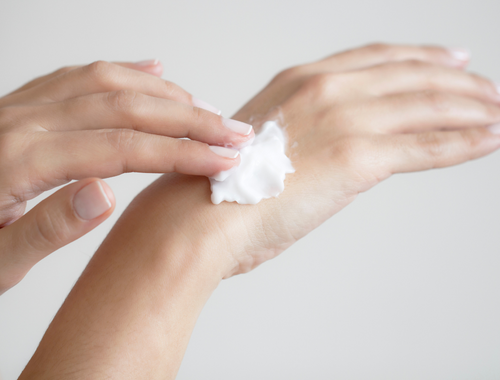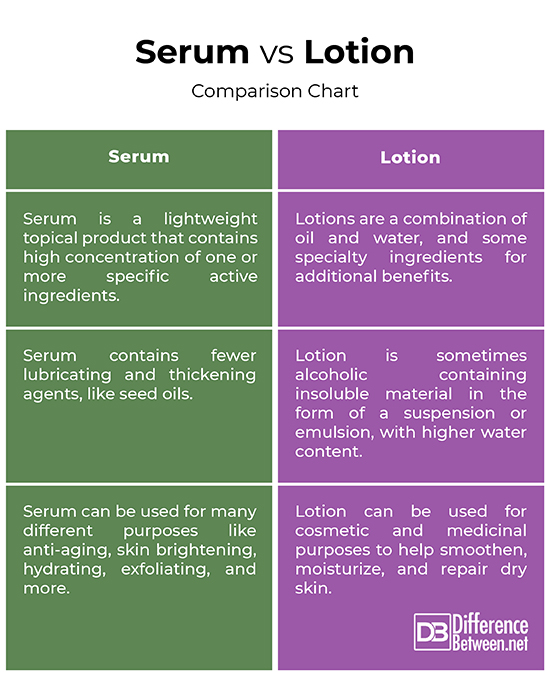Difference Between Serum and Lotion
The global beauty and personal care market is worth billions and is only rising due to the increasing amount of money we are willing to spend on beauty and skincare products. The desire to have flawless, youthful skin is not new. This practice goes way back to the times of Ancient Egypt. It’s surprising how little has changed over the centuries. The undisputed fact is that everybody loves their skin and needs to take care of the skin to be and look healthy. Well, they say “beauty is on the inside.” However, your outer beauty is as important as your inner beauty. But not all skincare are made equal. We tend to use blanket terms to describe our skincare regime. Serums and lotions are two of the most popular and effective skincare products that help fight off any age-related skin problems.

What is Serum?
Serum is a lightweight, quick absorbing topical product that contains high concentration of one or more specific active ingredients to take care of the skin. Serums have been at the center of beauty and dermatology world for decades now. Serums are specially formulated skin care products that penetrate deeply into the skin and address the causes of ageing and skin damage. Like other skincare products, serums are often packed with anti-aging and anti-acne ingredients for specific skin care needs.
Serums have a gel like texture and can be applied to the skin after cleansing but before moisturizer, with the intent of delivering powerful ingredients directly into your skin. These do not necessarily replace moisturizers though. Traditional serums are water based but most companies are now making oil based serums which feel richer. Water based serums contain what you can call penetration enhancers, like ethanol, butylene glycol, oleic, or linoleic.

What is Lotion then?
Lotions are, in many ways, moisturizers with a runnier consistency, not the thick buttery texture that you get with moisturizers. Lotion is a smooth liquid like designed to be applied to the skin for many different purposes, like moisturizing your skin, keeping your skin soft and hydrated, and so on. It’s a low-viscosity topical skin care product meant for application to the skin. It is sometimes alcoholic containing insoluble material in the form of a suspension or emulsion, with higher water content. Lotions can be used for cosmetic and medicinal purposes to help smoothen, moisturize, and repair dry skin.
Lotions have long been a great addition to the cosmetic line as more people become interested in luxury personal products. They do a great job nourishing and protecting your skin because they contain active ingredients that you choose, so you can avoid harmful chemicals. They are basically a combination of oil and water, and some specialty ingredients for additional benefits. Unlike creams, lotions are typically formulated with less thickeners and emollients for a lighter consistency. They are quickly and easily absorbed into the skin, so not much rubbing is needed.
Difference between Serum and Lotion
Product Type
– Serums are specially formulated skin care products that penetrate deeply into the skin and address the causes of ageing and skin damage. It is a lightweight topical product that contains high concentration of one or more specific active ingredients that serve different purposes. Lotions, on the other hand, are a low-viscosity topical skin care product meant for application to the skin. Lotions are typically formulated with less thickeners and emollients for a lighter consistency.
Ingredients
– Traditional serums are water based but most companies are now making oil based serums which feel richer. Water based serums contain what you can call penetration enhancers, like ethanol, butylene glycol, oleic, or linoleic, and are meant to target a specific concern. Lotions, on the other hand, are basically a combination of oil and water, and some specialty ingredients for additional benefits.
Purpose
– Lotions can be used for cosmetic and medicinal purposes to help smoothen, moisturize, and repair dry skin. They do a great job nourishing and protecting your skin, maintaining skin hydration levels, and reducing the dryness of skin. Serums, on the other hand, are specialty topical skincare products that contain concentrated amounts of active ingredients. Serums can be of many types depending on usage and benefits, like anti-aging serums, skin brightening serums, hydrating serums, exfoliating serums, and much more.
Serum vs. Lotion: Comparison Chart

Summary
In a nutshell, serums are mostly oil based and often packed with anti-aging and anti-acne ingredients for specific skin care needs. Serum, unlike creams and lotions, contains fewer lubricating and thickening agents, like seed oils. Lotions are emulsifying agents containing water soluble and oil soluble ingredients for application to the skin. Lotions are thicker whereas serums are lightweight and easily absorbable, and are specially formulated products that penetrate deeply into the skin for additional benefits.
Can I use lotion instead of serum?
Serums, unlike lotions, are lightweight and specially formulated topical products made with active ingredients that penetrate deeply into the skin, and are easily absorbable. Serums serve many different purposes. So, lotions cannot necessarily replace serums.
What goes first, serum or lotion?
Serums are typically lighter and penetrated into deeper skin layers, so they should be applied before lotions or any other skin cream.
What is the difference between a serum and a Moisturizer?
Serums have a much lighter consistency and deliver particular benefits related to the skin. They quickly absorb into your skin and there are many serums available for many different specialty purposes. Moisturizer is a thick lubricating agent that moisturizes your skin.
Are serums necessary?
Serums are certainly a great addition to a holistic skin care routine and like other skin care products, they have their own benefits. Serums contain active ingredients that are meant to nourish, protect, and hydrate your skin, and do more.
- Difference Between Caucus and Primary - June 18, 2024
- Difference Between PPO and POS - May 30, 2024
- Difference Between RFID and NFC - May 28, 2024
Search DifferenceBetween.net :
Leave a Response
References :
[0]Mahto, Anjali. The Skincare Bible: Your No-Nonsense Guide to Great Skin. London, UK: Penguin UK, 2018. Print
[1]Fu, Victoria and Gloria Lu. Skincare Decoded: The Practical Guide to Beautiful Skin. New York, United States: Simon and Schuster, 2021. Print
[2]Wu, Jessica. Feed Your Face: The 28-day plan for younger, smoother skin and a beautiful body. London, UK: Hachette UK, 2012. Print
